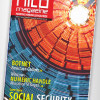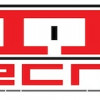MusicMatch Settles with RIAA on Web Radio Rights
LOS ANGELES (Reuters) - MusicMatch Inc. on Sunday said it struck a licensing deal with the recording industry to broadcast musical performances on its Web radio service, paving the way for both parties to drop lawsuits against each other.
``Entering into this license made the lawsuits unnecessary,'' said Bob Ohlweiler, senior vice president of music development for MusicMatch.
MusicMatch was one of several Webcasters embroiled in an escalating legal battle over the royalty structure for Internet radio stations.
At issue is whether Webcasters that allow users to pick the style of music they want to hear or skip songs selectively should require a separately negotiated license from the record companies, or whether they should be eligible for compulsory licensing like traditional radio.
Ohlweiler said the company had been negotiating with the RIAA (news - web sites) for quite some time. ``The urgency of all this led us to pull it together and this licensing announcement removes any kind of ambiguity or disagreements,'' he said.
He declined to disclose terms of the licensing deal.
The first salvo in the dispute came in late May when the Recording Industry of America (RIAA), which represents the record labels, filed suit against music portal Launch Media Inc. (NasdaqNM:LAUN - news) for allegedly failing to seek proper licenses for its personalized Web radio service, Launchcast.
Under the 1992 Digital Millennium Copyright Act (news - web sites), Webcasters that provide interactive features are required to seek special licenses with each record label but the law does not define those features exactly.
If they are deemed non-interactive, then they are eligible for statutory licenses, or a blanket license, granted from the RIAA. Two days after filing the suit against Launch, the RIAA filed a motion with the U.S. Copyright Office, which is expected to oversee royalty arbitration proceedings later this summer, to have MusicMatch and six other Webcasters declared ineligible for these statutory licenses.
INTERACTIVE OR NOT INTERACTIVE
The Webcasters and a trade group that represents them, the Digital Media Association (DiMa), responded to the RIAA's motion by filing suit in a San Francisco federal court on June 1 asking the court to define what kinds of features would qualify as ``interactive'' under the copyright law.
The RIAA shot back by suing MusicMatch and other Webcasters on June 8, asking a New York court to consider all of the relevant issues. The other Webcasters in the suit were MTVi Group and Xact Radio LLC.
But the agreement announced Sunday indicates the RIAA now considers MusicMatch a DMCA-compliant radio service, which is non-interactive, a MusicMatch spokesman said.
``This is a voluntary statutory license and is the same type of statutory licensing agreement that the other Webcasters will also receive when they go through the arbitration proceedings later this summer,'' Ohlweiler said.
``We're satisfied with the license and it allows us to continue to provide these radio products,'' he said.
Ohlweiler called the agreement a ``blanket'' license with the RIAA covering all of the labels it represents.
MusicMatch has been operating its radio service since November 2000 under the statutory Webcasting license provided by the 1998 DMCA.
``This license agreement confirms that the needs of online music lovers do not have to come at the expense of artists and copyright holders,'' said Hilary Rosen, president and CEO of the RIAA.






































































